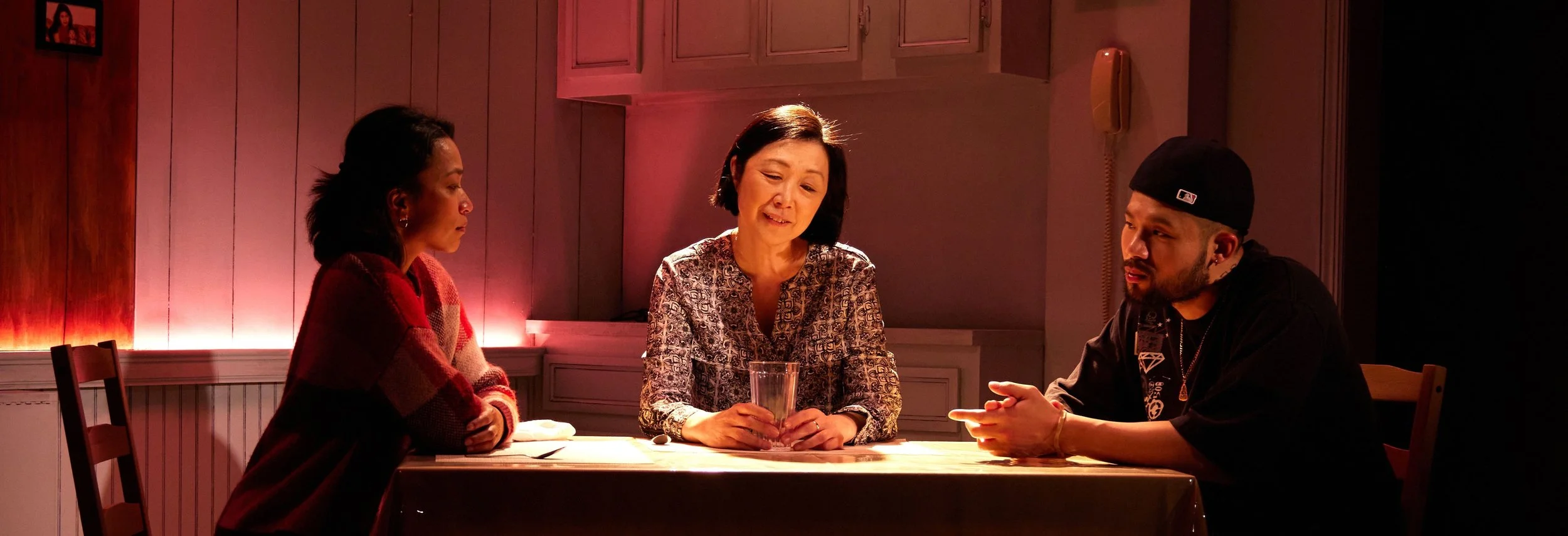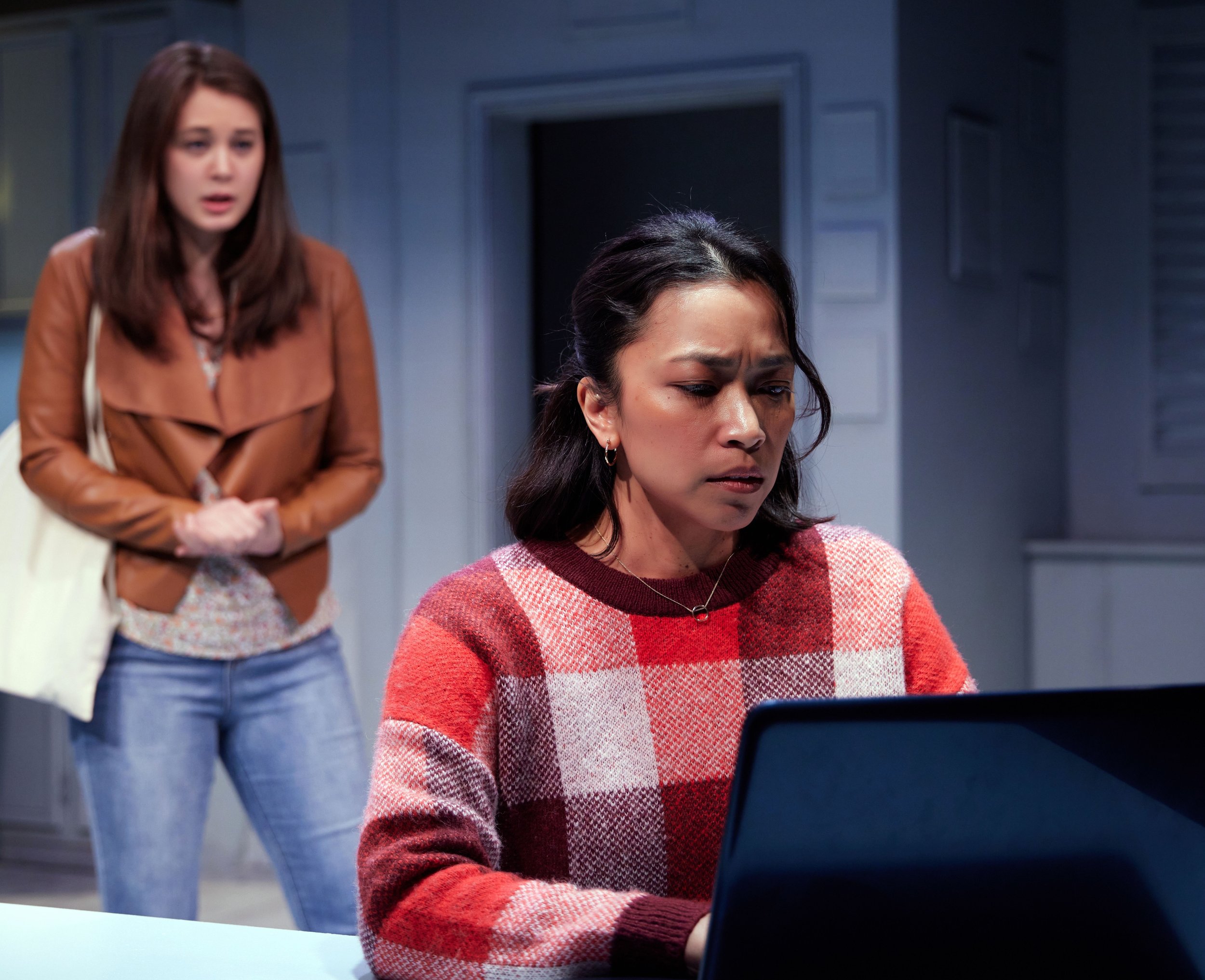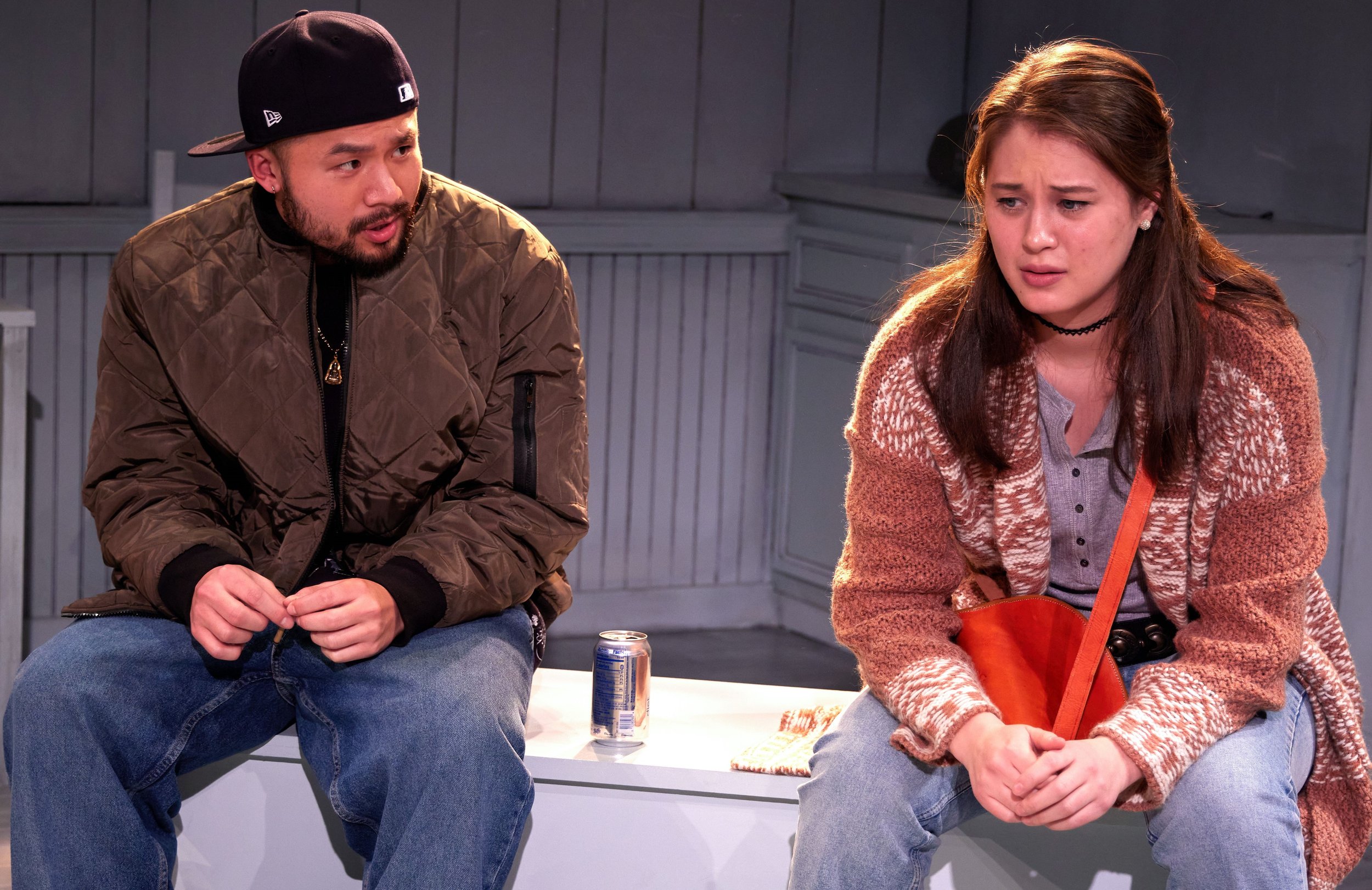Pia (Pisay Pao, right) is not happy to see Siobhan (Emma Kikue, left) after 10 years in What You Are Now, Sam Chanse’s drama that offers a rare look at a Cambodian American family.
Insights into Cambodian identity and immigrant experiences are the strongest thread running through What You Are Now, Sam Chanse’s drama at Ensemble Studio Theatre (EST), in which a young neuroscientist sees new research on trauma-related memory as a way to finally heal her mother, a survivor of the Khmer Rouge genocide in 1970s Cambodia.
“‘What You Are Now’ is the latest production to come out of EST’s partnership with the Alfred P. Sloan Foundation to develop science-themed plays.”
While it’s gratifying that the push by New York theaters to elevate underrepresented voices has expanded enough to include such an infrequently depicted community as Cambodian Americans, the play is hampered by stilted dialogue and uninspiring staging.
What You Are Now is the latest production to come out of EST’s partnership with the Alfred P. Sloan Foundation to develop science-themed plays. The scientist at the center of the story is Pia, whose mother fled Cambodia during the genocidal reign of the Khmer Rouge. Pia has an older brother, Darany, who—in contrast to his academically oriented, highly responsible sister—didn’t graduate from high school and has both a spotty employment history and a prison record. Their mother never talks about her life in Cambodia, but she still has nightmares, and suffers from trauma triggered by music.
Sonnie Brown (left) plays the mother, and Robert Lee Leng is her son Darany.
So Pia is intrigued by experiments (on rats) suggesting that memories could be altered after they are consolidated in the brain, and thus negative memories could be eliminated—even though, as her colleague Evan tells her repeatedly, “this is still years and years away from having any practical application.”
Serving mostly as a topic of discussion, the science of What You Are Now is not really integrated with the family story in a dramatically engaging fashion. Too often, what the characters say seems to be for the audience’s benefit instead of a natural-sounding conversation—like when a fired-up Darany recites the history of U.S. involvement in Cambodia to his friend Siobhan, who just attended the same lecture where he learned it. There’s also this exchange, rife with telling people stuff they would already know:
Evan: “Have you heard about the Nader and LeDoux study? ... Some people are dismissing it, but it’s not like it’s some radical fringe idea. Psychotherapists have been saying memory’s unstable and subject to change for years.”
Pia: “It’s good Nader and LeDoux did it, since their method is credible.”
Evan: “Yeah, I think the study’s great.”
Pia: “This means we can change fear memories. It’s the first time we’ve got proof that memories are unstable after they’ve been consolidated. It means we’re not stuck with our memories as they are.”
The play would be better served with a Pia/Evan conversation more suggestive of their burgeoning romance, since it’s hard to tell they’re anything other than friendly colleagues from their scenes together (which are all set in the lab). The status of their relationship is conveyed, as are other subplots and background details, just by one character stating it to another or talking about it in a phone monologue. No fewer than five scenes take place entirely during phone calls—an inert mode of storytelling—including the one where a fateful calamity unfolds, as well as the scene immediately following it, in which the event’s consequences become clear.
What You Are Now alternates between the present and 10 years earlier. There are no costume or set changes for the different time frames, but it’s easy enough for the audience to catch on after the first flashback. What’s more confusing is that nothing in the dialogue or the program indicates that the “present” is 2012, not 2022—it’s only in the written script. So you could get distracted wondering how Darany and his mother, at their present ages, were refugees from the Khmer Rouge, which fell out of power in 1979.
Darany (Leng) has his life shaken up after he meets Siobhan (Kikue). Photographs by Jeremy Daniel Photography.
Pia and Darany are both portrayed by actors of Cambodian descent. Pisay Pao, making her stage debut as Pia, limits her expression to “serious and burdened,” so Pia’s demeanor never changes much regardless of how old she is or who she’s with in any given scene. Robert Lee Leng inhabits his role of Darany much more vibrantly, and Sonnie Brown is effective as the mother. Curran Connor can’t do much with the underdeveloped part of Evan, and while Emma Kikue’s performance is decent, her character Siobhan is written more as a mouthpiece or symbol rather than a fully rounded individual.
What You Are Now is directed by Steve Cosson, artistic director of the Civilians, a coproducer of the play. Riw Rakkulchon, the show’s Southeast Asian scenic designer, covers the walls of Pia’s home with empty picture frames to represent, along with the monochromatic gray of the set, the emotional void in her family’s life.
What You Are Now runs through April 3 at Ensemble Studio Theatre (545 W. 52nd St.). Performances are at 7 p.m. Monday and Wednesday through Saturday, with matinees at 2 p.m. Saturday and 5 p.m. Sunday. For tickets, visit ensemblestudiotheatre.org.





